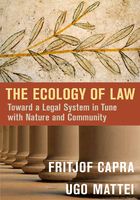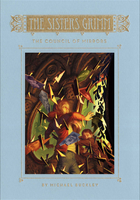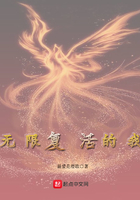I NOW THINK OF MY SURVIVAL AS MY FATHER'S FIRST MIRACLE. DR. NOKES himself named the event miraculous once he woke up and washed his face and remembered who he was.
The second, I suppose, is that the doctor turned out wrong about the brain damage. I'm happy to say none surfaced until I entered tenth grade and signed up for Plane Geometry; but since I can still feed myself and grind out a sentence in English, you won't hear me complain.
Dad's third miracle—and one of the most startling, if not consequential—happened in the middle of the night, in the middle of North Dakota, just after I turned eleven.
It was the trip I shot my first goose, a medium-sized snow. We were staying at August Shultz's place, four hours west onto the Great Plains, hunting near the homestead Dad grew up on and still quietly longed for. The goose was a joyous occasion, and for a while we could all speak to each other again. That is, Dad and Davy could speak again—Swede and I rarely quarreled, for I never held opinions in those days, and hers were never wrong.
I do remember that the tension in the car, going out, was so potent I fell asleep as soon as I was able. A veteran bystander to hard moments, I knew they went by quicker when you were unconscious. Davy was sixteen then, a man as far as I was concerned, with a driver's license and a knockout four-inch scar down his right forearm and Dad's own iron in his spine. That night they sat in the front seat of the Plymouth, green-gilled from the dashlights, not speaking at all.
We were late getting started, as happened often, because Dad had to lock up the school after the football game. Swede and I yawned in the backseat, boxes of shotgun shells stacked at our feet. The sky spat ice and water. It rode up on the windshield, and from time to time Dad pulled over so Davy could jump out and scrape it off. That Plymouth had a worthless heater. Swede and I rode cocooned in gray army blankets and stocking caps, the two of us scratchy as horsehair. Twenty miles into the trip she slipped off her rubber boots; then I felt her toes creep up against my hip. Oh, but they were cold. I pulled them into my lap and rubbed them while up front Davy opened a thermos, poured coffee into the lid, and without looking at Dad handed it over.
Still not a word between them. The road beat backward under us. In a few minutes Swede's toes felt warm and she was breathing evenly through her nose. I kept my hands tented over her feet, pigeon-toed there in my lap, laid my head back against the seat, and slipped away as well.
Before dawn we settled among decoys in one of August's barley fields. Dad and Swede lay on their elbows side by side, the two of them whispering under a swath. Davy and I took the opposite flank, he with his clawed-up Winchester goose gun. I was too young to shoot, of course, and so was Swede; we were there purely, as she said, "for seasoning." In all the years since I don't remember a colder morning afield. Rain can outfreeze snow. We lay between soaked ground and soaked swaths with a December-smelling wind coming over our backs. As the sky lightened we heard geese chuckling on the refuge away to the east. The rag decoys puffed and fluttered. I yawned once, then again so hard my ears crackled.
Davy said, "Don't go to sleep on me now, buddy."
He could say it; he wasn't cold. Though his gloves were nothing but yellow cotton, he could handle an icy shotgun in evident comfort. I had on his outgrown leather mitts with two pair of wool liners, yet my fingers were clenched and bloodless. It seemed to get colder as the day came on. When Davy said, softly, "Old Rube, I could live out here, couldn't you?" I was too frozen to tell him yes.
Minutes later I woke: Davy was poking me in the side. Finger to his lips, he nodded east. A lone snow goose was approaching, fighting the wind, making low questioning honks at our flock of rags. I put my face against the ground, trying not to move—a goose is an easy bird to spook. The loner's honks got louder and more confident as it decided to land for breakfast. It was utterly fooled. I'd actually started feeling sorry for the doomed bird when Davy grabbed my shoulder and spun me so I lay on my back. He jammed the Winchester into my hands.
"Take him, Rube."
The goose was straight overhead. Not twenty feet high! I flung off a mitten and tried to aim. The gun was way too big but I balanced it out there and yanked the trigger. Nothing happened—something was stuck—then Davy's hand zipped out and clicked the safety off. The goose was just beyond us but still so close I could hear its panting wings. I yanked again, shot wild, and the recoil slammed my shoulder into the mud. My ears rang high and clear, and the goose finally understood and tilted off to the left while I pumped another shell into the chamber and fired again. The goose still didn't fold but caught the wind and sailed over the barley like a kite. Tears were in my eyes—I'd missed two easy shots and wasted Davy's present to me. Blind with despair I fired again. The goose had to be out of range; yet somehow it shuddered, went graceless, and made a controlled fall to the ground some eighty yards away. "You did it," Davy said. "Good shot—you took him the hard way, buddy. Better go finish him."
But as I handed him the gun, almost sobbing with relief, Swede streaked past in her corduroy coat yelling, "I'll get 'im, I'll get 'im!" and Davy said, "Aw, let her chase the old bird down," so I watched her go, yellow hair bouncing behind her stocking cap.
Downfield, though, the goose seemed to have recovered its wits. It stood upright, taking stock, its head so high and perky I feared it might take off and fly after all. When it saw Swede coming it turned and sprinted away.
I'm telling you that goose could run.
Seeing this Swede lowered her head and went full steam, mud and chaff raining off her bootsoles. Dad started laughing, whipping off his cap and whacking it on his leg, while the goose stretched out its neck and bolted across the barley. Reaching the end of the field it encountered a barbwire fence. It stopped and turned as Swede closed in.
Did you ever see an angry goose up close? It's a different bird from those you've watched flying south or waddling in city parks. An adult goose in a wrathful mood can stand up and look a third-grader right in the eye, and that's what this fellow did to Swede. She got within a yard and stopped cold. She'd seen Dad wring a few goose necks and understood the technique, but those had been badly wounded, pathetic creatures—they'd seemed almost grateful to get it done with. This goose still owned its spirit. Later Swede told me she felt numb, standing there with her hand out; the goose had one blind, clouded eye, plenty eerie in itself, but Swede said the good eye was worse. She looked into that good eye and saw a decision being reached.
"It decided to kill me," she said.
From where we stood, though, all we saw was the goose raise its wings and poke its beak at Swede. She spun, slipped to one knee, then was up and shutting the distance between us. The terrifying part, for her, must've been glancing back and seeing that goose coming after her just as hard as it could, wings spread, its black beak pointed at her rump. Dad was laughing so hard he was bent clear over and finally had to sit down on a gunnysack wiping his eyes. Swede led the bird straight toward us, and when she pounded past, Davy leaned over and snagged it just behind the head. A quick twist and he handed it to me, wings quivering. He grinned. "All yours, Natty"—after Natty Bumppo, Mr. Fenimore's matchless hunter. It was a heavy goose. I realized I was warm, standing there with my mitts off, even hot. I held my goose with one hand and Davy's Winchester in the other, smelling gunpowder and warm bird, feeling something brand-new and liking it quite a bit. Swede, though, was crying, her face in Dad's belly, even while he laughed helplessly on.
* * *
Swede felt bad about that goose for a long time. For an eight-year-old girl she put enormous stock in courage. To be routed across a barley field by an incensed goose gave her doubts about her character.
"He's really a big one, look at him," I said, once we were back at August's farm doing the job you might expect; behind the barn was a hand pump and an old door set across a stock tank for a cleaning table.
Davy was whetting the blade of his hunting knife, a bonehandled Schrade. He said, "You want me to show you how?"
"I shot him, I'll clean him." I had no urge to actually gut the bird, but I was eleven and a hunter now—a man just beginning his span of pride.
He gave me the knife, handle first. "Don't forget to thumb out the gizzard. We don't want sandy gravy, uh?"
As he strode away I noticed how the clouds had racked up, thick and low, and how the light was going though it wasn't yet noon. Maybe this affected me, or maybe it was just the thought of cleaning that goose by myself, but I sure wanted Davy to stay.
"I'll save out the heart for you," I called after him, and he turned and smiled, then climbed a low ridge of cottonwood and willow brush and disappeared.
I had, of all things, a lump in my throat. Luckily Swede was standing at my elbow and said, "First thing, you have to cut his head off."
"Well, I know that."
She prodded the goose with her finger; plucked, it looked pimply and regretful.
"Then the wings," she said.
"You want to clean him?"
Swede let it go and stepped over to the ruins of a grain truck that had been parked behind the barn to rot. She shinnied up the big rumplike fender and sat there with the wind tugging her hair. It was a cutting wind; the light was leaking from a mottled yellow sky. Imagine a sick child all jaundiced and dirty about the cheeks—that's how the sky looked. I picked up Davy's knife and tried it against my thumb, then beheaded the snow.
Watching, Swede said, "Forgive me running, Rube?"
"What?"
"I ran away."
"From the goose? Swede, it wasn't any big deal." I tossed the head into a cardboard box we'd found in the barn and went to work on the wings. They came off a lot harder than the head; I had to saw the knife blade back and forth.
"Come on, forgive me," she insisted.
I nodded, but said nothing. Those wings were gristly fellows.
"Out loud," she said.
She was the most resolute penitent I ever saw. "Swede, I forgive you. Is it all right now?"
She hugged her elbows. "Thanks, Reuben—can I have the feet?"
I whacked them off at a chop apiece and tossed them up to the truck. Swede caught them and scrambled over to the grainbed. My hands were freezing and I dreaded the next part—I ought to've taken Davy's offer to clean the goose. Aiming at a spot under the breastbone, I plunged in.
"Swede," I said—just talking so she'd stay with me—"I don't get what's wrong with Davy."
She didn't answer right away. She sat on the flatbed toying with the goose feet. She took so long to speak I got involved in a tangle of guts and forgot I'd said anything.
Finally she said, "He's mad about Dolly."
"Oh." Davy's girlfriend. "How come?"
She looked at me. "You heard," she said. "Last night, driving over."
We'd gotten a late start, as I mentioned. The football team had been busy getting whomped; it was almost eleven before we got on the road.
"I was sleeping."
"You were faking, I could tell. Just like me."
We heard the screen door open, up at the house. "Pancakes in five minutes!" Dad hollered. The screen slapped shut.
"Really, I was asleep—I swear it, Swede."
"Israel Finch and Tommy Basca had Dolly in the girls' locker room."
"What—how come?" Two boys had gone into the girls' locker room? You wouldn't have caught me in any girls' locker room. I might even have snickered, if it weren't for the look on Swede's face.
"They beat her up, Reuben. During the football game. Dad caught 'em."
It was only then that the names sunk in: Israel Finch, Tommy Basca. I shrunk up inside my coat. "How bad, Swede?"
"She's okay, I guess. I heard Dad say he got there in time."
"What, did he chase 'em off? Did he fight 'em?"
"I don't know. He wouldn't talk about it to Davy."
"Dolly's all right, though?"
"I guess so." Swede, a goose foot in each hand, made them walk daintily along the edge of the flatbed.
"Then why's Davy mad? Wasn't he happy Dad caught those guys?" I didn't even want to say their names aloud.
"I don't know. Ask Davy if you want."
I wasn't sure I could do that. Though there were only five years between Davy and me, lately they'd seemed a weighty five. At times it felt like he was Dad's brother instead of mine.
Finishing the goose I held it under the pump until water surged clean from the cavity, then went up to the house with Swede. On the way she showed me how by pulling a tendon she could make a goose foot contract and relax. She made the foot into a tight goose fist and said, "Youuuu dirty raaaaat!" For a kid sister she did a very adequate Cagney.
We hunted again that afternoon, under skies so cold frost paisleyed the gunbarrels. Davy had missed the pancakes, but Dad had served them up merrily to Swede and me and not commented on Davy's absence; then he stoked the woodstove and the three of us went to our rooms to snooze. That's how goose-hunting is—you rise early and do the cold, thrilling work; then come in and eat; then fatigue sneaks up and knocks you flat. I pulled up the quilt and slept like a desperado. I woke to Davy sitting on the bed across from me, wiping down his shotgun with an oiled rag.
"Hey, Natty," he said, seeing me stir.
"Hey, Davy. We going back out?"
"A little bunch went down on the west quarter. Canadas." He hiked his eyebrows at me. "We're gonna crawl up."
"Okay!" I threw the covers back, stretched, and tried to shake out the murky dream I'd been having—there was a reptile of some sort in it. Davy laid the shotgun across his knees and leaned forward. A warm tobacco smell clung to him.
"Listen, Rube. You heard us talking about Dolly last night, didn't you?"
"I was asleep. Swede heard, though."
"Well, she didn't hear everything. Dad kept shut, to keep from scaring you guys, but you should know this. Finch and Basca made some pretty vicious threats. To Dad, I mean." Getting me by the eyes, Davy said, "They talked about hurting his family."
It took me a second to realize he meant us. Dread landed flopping in my stomach. We'd never had an enemy before, unless you counted Russia. I watched my brother closely.
"They're basically loudmouths," he said. "Cowards, windbags; they won't do anything. I don't want you to worry. Just keep an eye out, that's all." He was entirely relaxed, saying this, as though it was nothing we couldn't handle. It reassured me but was unsettling too. The way he mentioned Dolly, for example—breezing past her name as though she were somebody else, an aunt or something. He said, "Okay?"
"Okay."
"And let's not mention it to Swede, Natty. All right?"
"Nope. We don't need to scare her, I guess."
"Good." He reached down and picked up my boots and set them in my lap. "Now let's crawl up on those Canadas."
A crawlup, if you're not familiar, is a different kind of hunt from waiting among decoys. I stuck with Davy again, Swede with Dad, and we squirmed on our bellies up a shallow rise beyond which a few dozen honkers were feeding on stubbled wheat. This time there was no whispering among us; the light was almost gone and though we supposed the geese were close we couldn't hear them and had to crawl on faith that they were there at all. It was a very serious crawl, even though Swede on my left was pretending to be a wild Sioux brave creeping up on some heedless cowpoke—a game I'd happily played also, when hunting, until that morning when Davy handed me his gun. Now suddenly I found it quaint, and when she sneaked a look at me I grinned and winked, instead of keeping my Sioux composure, and she frowned at me savagely and went bellying forward.
At the crest of the rise lay a small rockpile. We wiggled up to it and Dad peered over. "They're pretty far," he whispered. Now we could hear them, uttering occasional harsh honks. They sounded uneasy, and when Davy had a look he said, "They're walking away from us, look at 'em waddle."
There wasn't a thing we could do; the geese were out of range. I was disappointed all out of proportion. I'd been hoping—expecting—that the Canadas would be right there for the taking. Also that Davy would again give me the shot. (It's strange—that morning I hadn't expected to fire at a live goose for two, three years, and it hadn't troubled me a bit. Now I wasn't going to get a shot at these present Canadas, and the fact had me ready to cry.) Then came a great racket of honks and the geese rose up in a panicked layer and beat westward into the wind, away from us. Dad got up on his knees and took aim but didn't fire. Davy didn't even raise his gun.
The voices of the Canadas faded to a dim disorganized music, and we rested against the rocks.
"Well," Dad said.
The cold seeped through clothes toward bone. Joyless and bushed, I sat pouting over having crawled so far for nothing. Dad was just getting up when Davy said, "Wait."
He watched the dirty western sky. When he said, "Down," Dad knelt slowly back among the stones.
A honk came seeking us out of the distance.
"One of 'em's broke off from the group," Davy said quietly. "There." He pointed at something none of the rest of us could see.
We huddled into what little cover we had. Half a minute later we saw the goose coming toward us. My, it was high. Dad relaxed. A bird that far up is all but beyond the reach of lead shot. Swede soughed in defeat.
"Stay down," Davy said.
The goose now commenced a wide swing round the field, while Davy melted into that rockpile as if to join it forever. I remember the low angle at which he held the shotgun; I remember his shadowed, patient eyes—he looked ready to burst from cover and chase down an antelope. The odd thought came to me that Davy was hunting alone—that Dad and Swede and I weren't even there, really; that we existed with him as memories, or fond ghosts watching his progress.
The goose circled the field once, saw nothing interesting, and gained altitude; it might've been considering Mexico, it was that high. It flew over the rockpile on its way south, and when it did Davy rose to one knee and shot it out of the sky.
That night Swede and I lay somewhat breathless under a hill of quilts. For drafts there was noplace like August's farmhouse; you could roast under such strata and your nose still cold as a glass knob.
"What do you think Davy'll do—about those guys?" Swede whispered, eyes alight. Though I'd promised not to scare her with any Finch and Basca talk, she kept coming back to them.
"What do you mean, do? They're just cowards, windbags." An unsatisfactory answer to a warrior like Swede. She jounced a little under the quilts, which let in some cold, and we listened to talk from the kitchen: August and his wife, Birdie, larking through the old stories with Dad. Davy was in there too, drinking coffee with the grownups, keeping his silence.
"You think he'll fight 'em?"
"Why would he? Dad took care of those guys already, didn't he? In the locker room."
Swede said, "Davy thinks they got off easy, can't you tell? He's being such a grouch. Boy, I'd hate to be those guys when Davy gets hold of 'em."
I thought that was awfully bold of Swede on Davy's behalf—you understand, I would never bet against my brother, but these two fellows were as serious a kind of trouble as you could purchase in Roofing back then. To call Finch and Basca the town bullies doesn't touch it, as you will see.
"Maybe," I said, "we just ought to wait. All right?"
We settled, yawned, and listened to August Shultz talk about Doot, his fleet quarter horse in days of yore. We knew about Doot. As kids, Dad and August had been neighbors, only a few miles from here. August would ride over in the mornings and pick up Dad, who'd be saddling his paint Henry in front of the barn, and they'd race the last half mile to school. Though Henry was a dozen years older than Doot, Dad was by nature a flat-out rider whereas August had inherited the cautious temperament of his German forebears. On calm autumn days the dust raised by Dad and Henry would hang above the road for hours; to August's great credit, he never exhibited resentment about the constant losing. In fact, though August's judiciousness cost him transient glory, it probably saved his farm any number of times; it probably accounted for his now owning three farms, including the one he loaned us to hunt on every fall. Dad's family, the Lands, had not only lost their farm toward the end of the Dust Bowl years, they'd never again owned anything like the ancestral namesake. We'd become renters—which was, in our case, about all that the family of a small-town school janitor could expect.
Swede murmured, "I'm sleeping, Reuben."
"Back to your room, then." She'd slipped in with me because the room I shared with Davy was nearer the kitchen, the better to eavesdrop on the grownups.
She got up, kissed me, and stood by the bed in her cowboy-print pajamas. "Rube, you're almost like Davy now, aren't you. I mean, you shot a goose this morning."
She meant to compliment me, but the fact was I'd been thinking this over. By the time we left to steal up on that little bunch of Canadas, I'd almost begun to believe I'd taken that goose on account of my own skill—as if I hadn't blown two easy shots before lucking out on a long one. But Davy's work on the lone Canada had slapped me awake. I had in my mind, that night, the image of Davy I'll carry with me always, a picture that is my brother more than any other I might recall. It's Davy at the very top of his motion—risen to one knee, Winchester at his shoulder, barrel pointing a few degrees from straight up. His hat's fallen to the rocks behind him and his short blond hair stands stiff as a wolf's. His right index finger is just whitening on the trigger, and on his face is nothing at all but the knowledge that the goose is his.
Not confidence—I understand confidence. What Davy had was knowledge.
I reached out and squeezed Swede's arm. "Sure I am," I said. "Good night."
Waking past midnight I departed this dream: I was crossing a shallow river that smelled of dying plants, my bare feet sinking in muck, the far shore concealed by fog. Not a sound but the swirl round my shins. Then a breeze touched me. The mist corkscrewed away and I saw the shore. A dead horse lay swollen there, tail in the river. I stopped midstream, my breath gone, and woke gasping to the windowful of moonlight and Davy in his bed snoring, arm thrown across his eyes.
I was scared to go back to sleep. There'd been something worse on that riverbank than just a dead horse, I was sure of it. I'd barely awakened in time! Sitting up I realized, with some relief, that I had to go to the outhouse. Normally I'd have dreaded this, for the usual dark and scary reasons, but this time the idea seemed outright friendly—a chance to walk that vision off. I slipped from bed and pulled on my pants and carried my boots into the kitchen. A kerosene lantern was lit on the table. I took my coat from its hook and went out.
The privy stood next to a leaning corncrib downhill from the barn. I felt better, standing under the big clean moon, and even considered going back inside and trying to hold it till morning. But you know how it is—you might barely have to go at all, but just step out in the cold. Suddenly I had no choice, so I hunched my shoulders and headed for the outhouse, the moon bouncing my shadow off the grass.
Then, nearing the barn, I heard footsteps.
Nothing stealthy about them, just shoeleather on wood. It sounded like a man strolling a boardwalk. Still, the noise raised my short hairs, in the middle of the night like that, until I figured it must be Dad, pacing the flatbed of the old grain truck parked behind the barn.
The steps stopped abruptly—which prickled my skin some more—then continued as before.
By now, understand, I knew it was Dad. You know the meter of your father's walk. Still, it was the dead of night; the smell of the dream hung around me; all sorts of lunar imaginings had hold of my brain. So I crept up quiet next to the barn and catwalked in its shadow until I could peek round the corner at the grain truck.
Dad, sure enough, was pacing the flatbed. He was praying—nothing unusual for Dad; he liked to walk as he prayed.
Did I say earlier that the flatbed sat up off the ground about three feet? Because I should have; it matters here.
Dad's hands were clenched and pressed to his eyes; he wouldn't have seen me had I flapped my arms and flown. His lips were moving. Though he often comforted Swede and me by quoting from the gospel of John, Let not your hearts be troubled, it was plain Dad himself was suffering the labors of a troubled heart; over the business of Finch and Basca, I figured, or over Davy, who clearly saw the matter as unfinished. I indulged in a black thought or two about my brother—snoring back in the house, the bum.
And then, as I stood watching, Dad walked right off the edge of the truck.
I saw it coming—his knuckles jammed to his face, his steps not slowing at all as the edge approached. I meant to rush out and warn him, but something froze me tight. I stood there with my knees locked and my heart gone to water, while Dad paced over the edge.
And did not fall.
He went on pacing—God my witness—walking on air, praying relentlessly, a good yard of absolutely nothing between the soles of his boots and the thistles below. As he went, the moon threw his strangely separate shadow to the earth; a sleepy pigeon cooed from the barn; Dad's boots touched the tops of a thatch of tall grama growing up among the thistles, and they waved as if stroked by wind. I will forget none of this. Nor the comfortable, fluttery feeling it gave me, as though someone had blown warm smoke through a hole in my center. Dad went perhaps thirty feet, paused, and started back. His eyes were still clenched shut; I don't know whether he ever recognized how buoyant was his faith that night. But in the sudden quiet—his feet noiseless, hitting nothing—I could hear his supplications. Straining my ears, I was surprised to catch not Davy's name but mine. Then his bootsole struck the flatbed again and he was pacing as any man does, connected to the solid and the natural.
It might seem odd to you that at this point I remembered why I'd come outside in the first place. In growing discomfort I looked at the outhouse. Getting there meant clutching my pants and lurching straight past Dad—and him walking on the hand of God! I knew what heretic meant, for Swede had read me more than a few bits of gruesome history. A person didn't like to take chances; there was a willow thicket across the yard, and I took myself there in a hurry.















